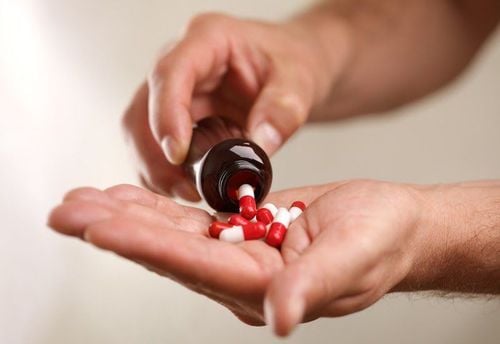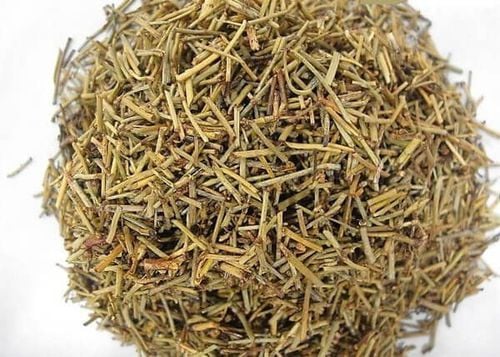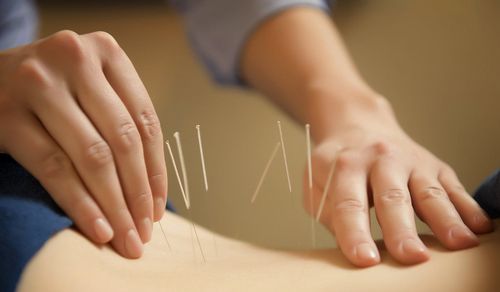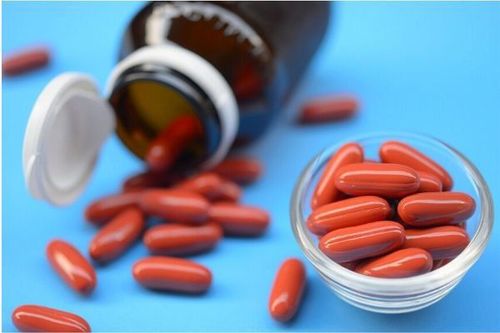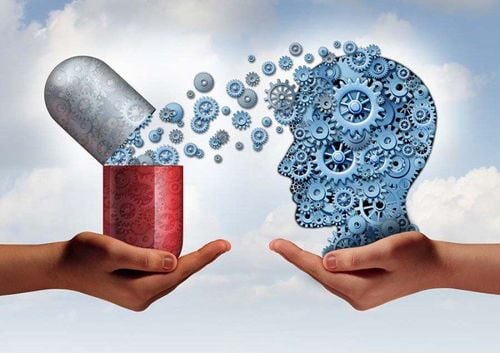This is an automatically translated article.
Acupuncture is a form of treatment in which needles are inserted through the skin at specific points on the body, and at different depths. Scientifically, how acupuncture works is still unclear. Acupuncture is still controversial among Western medical doctors and scientists. The article will help you better understand what acupuncture is and how it affects the patient's health.1. What is acupuncture?
Acupuncture is an age-old practice in which the practitioner uses thin, solid metal needles that are pierced through the skin, which are then activated through gentle, specific movements of the table. performed by hand or by electrical stimulation. Ayurveda claims it works by balancing vital energies, while others believe it has psychoactive effects.Acupuncture is part of the ancient practice of Traditional Chinese Medicine. Traditional Chinese scientists believe that the human body has more than 2,000 acupuncture points that are connected by pathways or meridians. These pathways create a flow of energy (called Qi, pronounced "chee") through the body responsible for overall health. Disruption of the flow of energy can cause illness. By applying acupuncture to certain points, Traditional Chinese Medicine practitioners claim to improve the flow of Qi, thus improving health. Studies have also shown that acupuncture is effective for a variety of conditions. However, acupuncture is not for everyone. If you want to apply this method, the first thing you need to consult with your doctor is whether this method is right for you, then you need to find a skilled acupuncturist. and licensed to operate.
Acupuncture is done by using hair-thin needles to be inserted into acupuncture points on the body. Most people report mild pain when the needle is inserted. The needle is inserted into a point that creates a feeling of pressure and soreness. The needle may be heated during the treatment or a mild electrical current may be used for stimulation. Some people say acupuncture makes them feel energized. Others say they feel relaxed.
Improper needle placement may cause pain during treatment. Needles must be disinfected to avoid sepsis. That is why it is important to seek treatment from a qualified acupuncturist. The U.S. Food and Drug Administration regulates acupuncture needles, like other medical devices, to ensure good manufacturing practices and single-use sterility standards.
Instead of needles, other forms of stimulation are sometimes used on acupuncture points, including:
Heat (heating) Pressing (acupressure) Friction Suction (cupping) Electromagnetic energy pulses
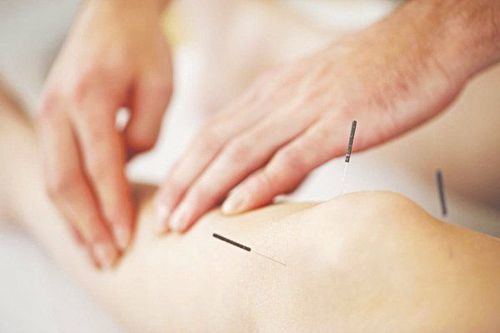
Châm cứu là phương pháp cải thiện một số tình trạng sức khỏe bằng việc xuyên những chiếc kim mỏng qua da
2. What is the effect of acupuncture?
Acupuncture points are thought to work in stimulating the central nervous system. This releases chemicals into the muscles, spinal cord, and brain. These biochemical changes can stimulate the body's natural healing abilities and promote physical and emotional health. Studies by the National Institutes of Health (NIH) have shown that acupuncture is an effective treatment that can be used alone or in combination with conventional therapies to treat the following conditions:Sadness Vomiting is caused by anesthesia surgery and cancer chemotherapy Toothache after surgery Addiction to drugs or other stimulants Headache Menstrual pain Elbow injury Fibromyalgia Neuropathic pain Osteoarthritis Lower back pain Syndrome carpal tunnel Asthma Acupuncture can also help restore function after an acute stroke. Traditional Chinese Medicine explains that health is the result of a harmonious balance between the two complementary extremes of "yin" and "yang" of life force and is known as "qi", pronounced "chi". . Disease is believed to be the result of an imbalance of these two factors, yin and yang. Qi is said to be the flow through the meridians, or pathways, in the human body. These meridians and energy flows can be worked through through 350 acupuncture points on the body. Inserting needles into these acupuncture points with the right combination is said to bring the energy flow back into balance to bring health to the user. There is no scientific proof that meridians or acupuncture points exist and it is difficult to prove that they do or not, but many studies suggest that acupuncture works for a number of conditions.
Some experts have used neuroscience to explain acupuncture. Acupoints are considered to be places where nerves, muscles, and connective tissue can be stimulated. The stimulation increases blood flow and at the same time activates the action of the body's natural pain relievers. It is difficult to conduct studies using proper scientific methods, because of the invasive nature of acupuncture. In a clinical study, a control group will have to undergo a sham treatment, or a placebo, to get results comparable to the results of genuine acupuncture. Some studies have concluded that acupuncture gives patients the same benefits as a placebo, but others have shown that there are some real benefits.
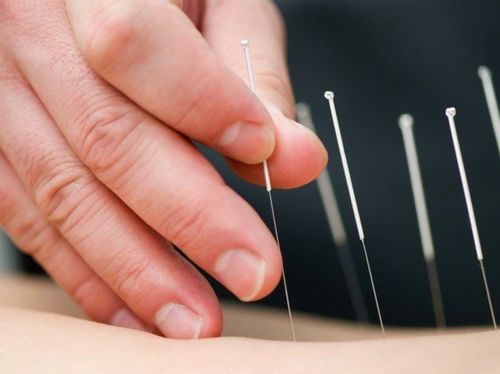
Châm cứu có tác dụng cải thiện một số tình trạng như viêm xương khớp, đau thần kinh,...
Lower back pain Neck pain Osteoarthritis Knee pain Headaches and migraines They list complementary disorders Supplements may benefit from acupuncture, but further scientific confirmation is needed.
In 2003, the World Health Organization (WHO) listed a number of health conditions for which they said acupuncture had been shown to be effective, including:
High and low blood pressure Nausea and chemotherapy-induced vomiting Certain stomach conditions, including peptic ulcers Chronic pain dysentery Dental pain Reduces stroke risk Other health problems that the World Health Organization (WHO) says acupuncture may be helpful but more evidence needs include:
Fibromyalgia Nerve pain Rehabilitation after surgery Substances, tobacco and alcohol abuse Spine pain Stiff neck Vascular dementia Whooping cough, Tourette syndrome The World Health Organization also suggests that acupuncture can help treat some certain infections, including some urinary tract infections and dengue fever. However, they also pointed out that “only national health authorities can identify diseases, symptoms, and conditions that can recommend acupuncture treatment.”
3. Notes when choosing acupuncture methods

Trước khi lựa chọn phương pháp đông y châm cứu, bạn nên trao đổi trước với bác sĩ
Discuss acupuncture first with doctors. Acupuncture is not for everyone. Discuss all treatments and medications (nutrients, prescription and over-the-counter) that you are taking. If you have a pacemaker, are at risk for infections, have chronic skin conditions, are pregnant, or have breast or other implanted devices, talk to your doctor first. Acupuncture can pose health risks if we don't address these issues. The acupuncturist's medical diagnosis should not be relied upon. Get diagnoses from specialists only. If you want to use acupuncture, you can ask your doctor if acupuncture can help. Choose a licensed acupuncturist. The doctors who diagnose and treat you may be the most reliable people to refer you to a licensed or certified acupuncturist. Friends and family members can also be trusted sources of referrals. You don't have to be a doctor to practice acupuncture or become a certified acupuncturist. About 30 states in the US have established training standards for credentialing in acupuncture, although not all states require acupuncturists to be licensed. Not all certified acupuncturists are physicians, and the American Academy of Medical Acupuncture can provide a referral list of physicians who practice acupuncture. Consider cost and coverage. Before you begin treatment, ask your acupuncturist about the number of treatments needed and the cost of the treatments. The benefits of acupuncture are sometimes difficult to measure, but many people find it useful as a means of managing a wide range of painful conditions, especially chronic pain. However, some studies show that some types of simulated acupuncture seem to work as well as real acupuncture. There is also evidence that acupuncture works best in people who expect it to be effective. Acupuncture has few side effects, so it may be worth a try if you have trouble controlling pain with more conventional methods.
Please dial HOTLINE for more information or register for an appointment HERE. Download MyVinmec app to make appointments faster and to manage your bookings easily.
References: mayoclinic.org, medicalnewstoday.com, hopkinsmedicine.com



